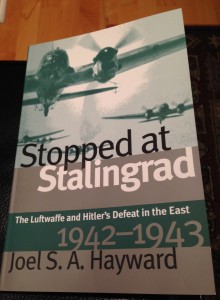It appears that the downing of Malaysia Air flight MH17 is Russian Federation President Vladimir Vladimirovich Putin’s version of Iran Air 655. The accidental downing of a civilian airliner blundering into a combat situation and got knocked down by a surface to air missile. However, instead of the Aegis Cruiser USS Vincennes (CG-49), in a Persian Gulf firefight with Iranian Revolutionary Guards small boats, we have “Russian Seperatists” equipped with Russian Federation supplied NATO Reporting name SA-11 “Gadfly” medium range surface to air missiles in the Ukraine.
See this CBS Report:
Malaysian Boeing 777 passenger airliner carrying 295
See also this AP report that placed an SA-11 launcher, the likely murder instrument and know locally as “Buk,” in the area of the shoot down —
A launcher similar to the Buk missile system was seen by Associated Press journalists near the eastern Ukrainian town of Snizhne earlier Thursday.
.
On Wednesday evening, a Ukrainian fighter jet was shot down by an air-to-air missile from a Russian plane, Ukrainian authorities said Thursday, adding to what Kiev says is mounting evidence that Moscow is directly supporting the separatist insurgents in eastern Ukraine. Security Council spokesman Andrei Lysenko said the pilot of the Sukhoi-25 jet hit by the air-to-air missile was forced to bail after his jet was shot down.
.
Pro-Russia rebels, meanwhile, claimed responsibility for strikes Wednesday on two Ukrainian Sukhoi-25 jets. The Ukrainian Defense Ministry said the second jet was hit by a portable surface-to-air missile, but added the pilot was unscathed and managed to land his plane safely
.
Moscow denies Western charges that it is supporting the separatists or sowing unrest in its neighbor. The Russian Defense Ministry couldn’t be reached for comment Thursday about the Ukrainian jet and Russia’s foreign ministry didn’t respond to multiple requests for comment.
The Debris field is seven miles (11.2 KM) long, consistant with a airliner at 33,000 feet being destroyed by a medium range radar guided surface to air missile (SAM).
The West dropped a new round of sanctions on “Czar Putin De Santa Anna” (in honor of Putin’s continuing destruction of the Russian economy through foreign agression a’la General Lopez Santa Anna of Mexico) yesterday.
Russian leaders acting agressive after a new round of Western economic sanctions are an old Cold War theme that Putin loves to indulges in. That is what makes a “USS Vincennes scenario” type shoot down the most likely cause of this disaster…and it also helps that CNN’s Barbara Starr is reporting that the Pentagon believes Russian side also fired a Buk type missile that took out separate Ukrainian cargo plane on Monday.
It appears things are going to be getting much worse in the Ukraine.
